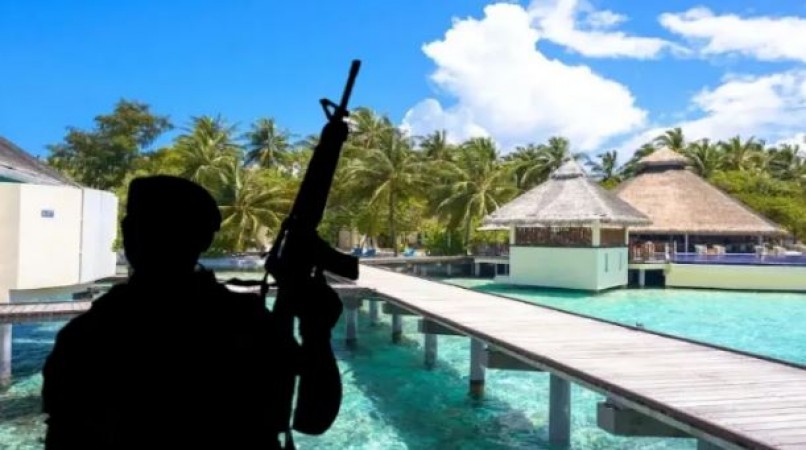
The Maldives, a stunning island nation in the Indian Ocean, is known for its beauty, consisting of approximately 1,200 islands primarily situated about 750 kilometers southwest of the main Asian continent, near Sri Lanka and in the southern part of India. Despite being renowned for its enchanting natural beauty, the Maldives has gained notoriety for terrorism. The presence of extremist groups like the Islamic State (ISIS) and Al-Qaeda has cast a shadow over this predominantly Sunni Muslim country.
At one point in history, the Maldives was under the rule of Buddhist warriors, as evidenced by the Buddhist stupas found on the islands. However, over time, the Muslim population increased, and today, more than 98% of the population adheres to Sunni Islam. The country has witnessed the destruction of many Buddhist stupas, either demolished or in deteriorating conditions. The strict Sunni interpretation of Islam has led to the rise of extremist ideologies, with the Islamic State and Al-Qaeda establishing roots in the Maldives. The government's policies align with Islamic and Sharia principles, providing fertile ground for radical elements.
Non-Muslims in the Maldives do not enjoy the same freedoms, and to obtain Maldivian citizenship, one must be a Sunni Muslim. The Ministry of Islamic Affairs governs religious matters in the country, contributing to an environment where extremist ideologies thrive. The United States Department of State has listed several Maldivian individuals and organizations associated with ISIS and Al-Qaeda, indicating the presence of these terrorist groups in the nation.
The Maldives has seen a significant number of its citizens recruited by ISIS, with over 250 individuals reportedly traveling to Syria for recruitment between 2014 and 2018. The capital city of Addu has become a stronghold for Islamic extremists, actively recruiting and spreading the ideology of groups like ISIS-K. The leader of ISIS-K in the Maldives coordinates activities such as IED placement and recruitment. Local youth are targeted with jihadist propaganda, fostering connections with ISIS and Al-Qaeda.
Before the influx of Maldivians joining ISIS and Al-Qaeda from 2014 onwards, Pakistan-based terrorist organizations had already established a presence in the Maldives. After the 2004 tsunami, the Jamaat-ud-Dawa (JuD) from Pakistan, under the guise of Idara Khidmat-e-Khalq (IKK), arrived to provide humanitarian aid. Despite the Maldivian government denying any official registration of the organization, reports suggest that IKK played a role in Lashkar-e-Taiba activities, influencing the radicalization of Maldivians.
The political landscape under President Maumoon Gayoom saw the introduction of laws favoring Sunni Islam, restricting the practice of other religions. The constitutional amendment in 1997 declared Islam as the sole state religion, making the practice of other religions illegal. Maumoon Gayoom's half-brother, Abdullah Yameen, continued the trend by strengthening ties with Wahhabi groups in Saudi Arabia, contributing to the radicalization of the population. The current President, Mohamed Muzamil, holds anti-India sentiments, in contrast to his predecessor Mohamed Nasheed, who had a more friendly approach towards India.
In conclusion, the Maldives, known for its picturesque landscapes, faces internal challenges due to the infiltration of extremist ideologies. The strict adherence to Sunni Islam, coupled with political decisions favoring radical groups, has made the nation susceptible to the influence of organizations like ISIS and Al-Qaeda. The government's alignment with Islamic principles further complicates efforts to counteract terrorism within its borders.
Health Ministry Reports 57 Deaths and 65 Injuries at Gaza's Al-Aqsa Hospital in 24 Hours
Be Cautious with Excessive Nail Polish Application or Regret it Later
If you apply too much nail polish then be careful, it affects your health